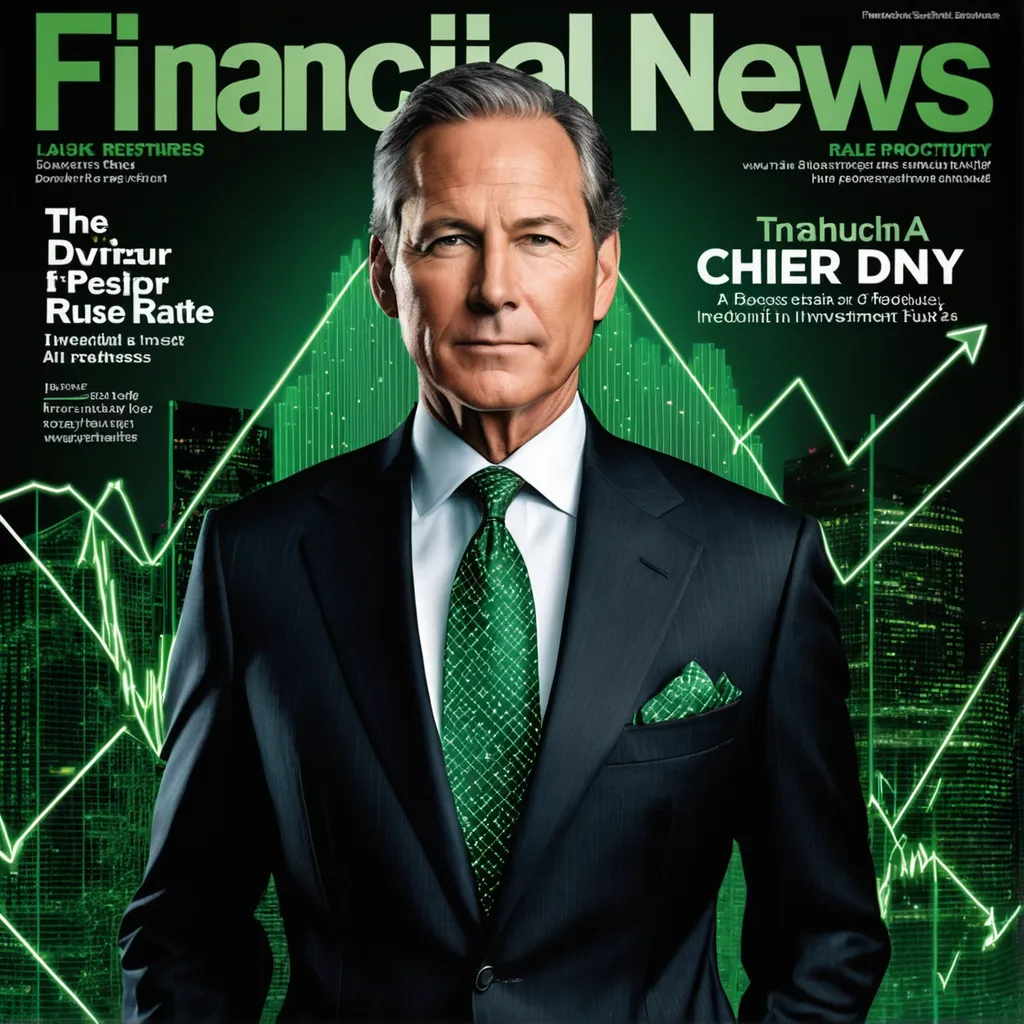
BlackRock CIO Rick Rieder: Rate Cuts Key to Fix US Housing
@Roy, this matter is related to Federal Reserve policies, housing impact, and regulatory implications, so I’m assigning it to you.
@Victoria, given the macroeconomic focus on interest rates, inflation, housing, and investment trends, please oversee this analysis.
Key Event: Rick Rieder, BlackRock’s Chief Investment Officer of Global Fixed Income, urged the Federal Reserve to cut interest rates immediately, arguing high rates harm low-income homebuyers and stall economic potential. He highlighted housing affordability, AI-driven productivity, and steady global crypto adoption as significant economic drivers, calling for balance between innovation and stabilization.
Editor-in-chief,
According to reports from Mitrade, AInvest, and a Bloomberg TV interview on July 26, 2025, Rick Rieder, BlackRock's Chief Investment Officer of Global Fixed Income, is urging the Federal Reserve to cut interest rates immediately. This call defies the broader Wall Street consensus, which largely favors steady rates or minimal easing.
Rieder argues that high interest rates are disproportionately harming low-income homebuyers and stifling the U.S. economy's potential. He contends that because the economy is now primarily service-based, it is less responsive to traditional rate hikes intended to curb inflation in the goods sector. Rieder stated that the most significant impact of current interest rates is on the housing market. He believes that lowering rates would spur more housing construction, ultimately leading to lower home prices and a reduction in inflation.
Rieder also pointed to several key economic drivers that support his call for a rate cut. He highlighted the transformative potential of artificial intelligence (AI), robotics, and data-driven business models as a powerful engine for future productivity and growth. He noted, "People underestimate how dramatic this is gonna be."
Furthermore, Rieder emphasized the "extraordinary" global adoption of cryptocurrency as a significant economic trend. He revealed that he personally holds a "moderate size" position in crypto and views stablecoins as a beneficial component of the future financial system that could help absorb some U.S. Treasuries and facilitate tokenized payments. Rieder still favors large-cap growth stocks and technology equities and suggests that a balanced portfolio can be complemented with small allocations to gold or crypto.
In the face of a significant national debt, Rieder's long-term solution is for the U.S. to "outgrow the debt." He believes a combination of strong GDP growth and lower interest rates is the path to de-levering the economy. Despite a seemingly strong economy, Rieder sees room for the Fed to act, noting that even with a rate cut to 3.25%, the Fed funds rate would remain above the current inflation break-evens of 2.5% to 2.75%.
Roy, focus on crafting a clear, concise article highlighting Rick Rieder’s provocative call for immediate Fed rate cuts. Begin by succinctly stating his position and how it diverges from Wall Street consensus. Prioritize explaining his reasoning—emphasize the impact on housing, the changing service-based economy, and his argument for productivity drivers like AI and crypto. Avoid overloading with wider context; instead, lean into Rieder’s specific claims and actionable insights for readers. Close with his proposed long-term strategy of outgrowing debt, keeping the tone analytical and precise.
BlackRock CIO Rick Rieder: Rate Cuts Key to Fix U.S. Housing
- Rieder calls for the Federal Reserve to lower interest rates, challenging Wall Street consensus.
- He highlights housing affordability, AI-driven productivity, and crypto adoption as key economic drivers.
On July 26, 2025, Bloomberg reported that Rick Rieder, BlackRock's Chief Investment Officer of Global Fixed Income, urged the Federal Reserve to cut interest rates immediately, diverging sharply from the broader Wall Street consensus. Rieder argued that steady or minimally eased rates disproportionately harm low-income homebuyers and suppress the U.S. economy’s growth potential.
Rieder emphasized that the impact of current high interest rates is most evident in the housing market. He explained that elevated rates raise barriers for homebuyers and slow housing construction, which ultimately drives home prices higher. He stated that cutting rates would accelerate construction activity, reduce housing prices, and contribute to lower inflation.
Rieder also contended that the U.S. economy’s service-based structure makes it less sensitive to traditional rate hikes meant to address inflation in goods. He asserted that existing rates are restricting the economy in ways that fail to reflect its evolving composition.
In addition to housing, Rieder pointed to artificial intelligence (AI), robotics, and data-driven models as transformative forces for productivity and growth. He described these developments as underappreciated by the market, calling them pivotal factors in reshaping economic dynamics. During a Bloomberg TV interview, Rieder noted, “People underestimate how dramatic this is gonna be.”
Rieder highlighted cryptocurrency adoption as another significant economic trend. He revealed his own moderate investment in crypto and praised stablecoins for their utility in advancing tokenized payments and potentially absorbing U.S. Treasuries. He also recommended balanced portfolios favoring large-cap growth stocks, technology equities, and small allocations to gold or crypto.
As a long-term solution to managing the U.S.’s substantial national debt, Rieder proposed "outgrowing the debt" by fostering strong GDP growth alongside reduced interest rates. He suggested that lower rates, such as reducing the Fed funds rate to 3.25%, would remain above inflation break-evens while enabling quicker economic expansion.
As of July 26, 2025, 17:08 UTC, Tether USDt (USDT) is trading at $1, with a 0.01% 24-hour change. USD Coin (USDC) is trading at $1, with a 0.01% 24-hour decrease, according to real-time market data from Mitrade.





